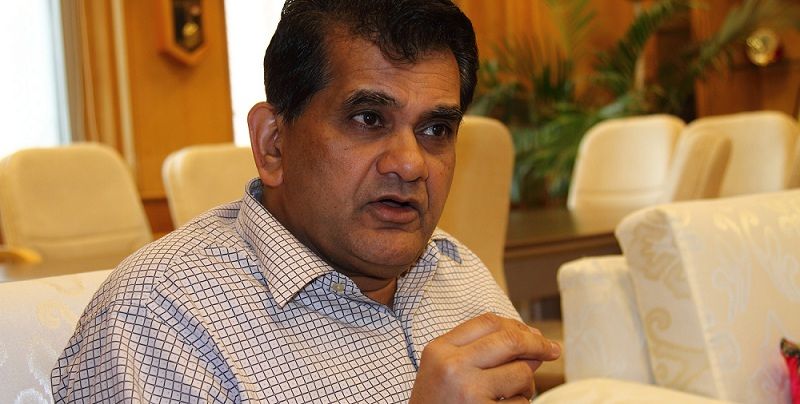
Global financial architecture needs to be tuned to meet the requirement of emerging nations like India, Brazil and South Africa as they are the global growth drivers, India’s G20 Sherpa Amitabh Kant said on Saturday. The flow of resources has to be directed towards emerging countries as 80% of global growth is going to be contributed by these economies, he added.
Sharing data, Kant said, the share of developed nations in global GDP was 60% while developing countries contributed 22% in 2008, when G20 was formed. At present, the share of developed economies has come down to 48% while that of emerging nations has increased to 37%.
It thus indicates that growth in future is going to come from developing markets. He said, “This would require financing and the international financial architecture will have to be adequately tuned to ensure that resources flow from the developed world to the emerging markets, and not vice versa, as is happening right now.”
There are different estimates of what kind of resources required, “For instance, the International Energy Agency talks about requiring $4.5 trillion for the energy transition. N K Singh and Larry Summers’s report talked about $3 trillion.”
“But if you look at both the advanced economies and emerging markets, there’s a requirement for both SDG and of climate action to the tune of $5-6 trillion.”
He further added that it was important to understand that if one is transiting to a clean economy, it provides a business opportunity of almost $90 trillion. Secondly, the world is not short of resources as almost $350 trillion are available globally for investments, and $150 trillion are available from pension funds and institutional investors at present. The challenge is that there is an asymmetry of risks and there is a lack of adequate data.
So, he said the risks for projects in developing markets are much higher because there’s a lack of adequate project pipeline. There is a need to de-risk projects and create new projects, he said, adding that would require a global accelerator for project development in emerging markets combined.
This would also require projects should be de-risked so that resources flow into these emerging markets in a much bigger way. At the same time, he said, multilateral institutions themselves should be using a lot of indirect funding–private capital, blended finance.
Observing that there is no shortage of funds, NITI Aayog Vice-Chairman Suman Bery said there is a need to work on data and project preparation. Ensuring sustainable transparent debt management, scaling up green financing and regulating credit rating agencies for a fairer assessment of emerging economies are some of the suggestions given during the workshop, Bery said while briefing media about the G-20 conference titled ‘A Green and Sustainable Growth Agenda For The Global Economy’.
Bery further added that the goal of achieving green transition goes hand-in-hand with the larger goal of becoming Viksit Bharat by 2047 and the Prime Minister’s mantra of Sabka Sath, Sabka Vikas.
The discussions during this policy workshop have generated several important suggestions for green and sustainable growth which NITI will pursue through various fora. Talking about the Prime Minister’s vision of achieving the Net Zero target by 2070, the Sherpa said that India will play a key role in green growth and sustainable development. Kant also said that India’s presidency of G20 is ambitious and action-oriented with most of the Ministerial meetings having finalised outcome documents.
NITI Aayog CEO BVR Subrahmanyam raised the issue of the cost of finance impacting the growth of emerging economies. “Since the bulk of money that will come will be private capital, the cost of capital is an issue and commercial flow will not happen till the time demand and supply side issues, as well as the issue of high cost of capital, is addressed,” he said.
Talking about the development related to India’s presidency, the Sherpa said as many as 182 meetings have taken place across 58 cities. India’s G20 presidency would come to an end on November 30 and would be handed over to Brazil. India had taken over G20 presidency from Indonesia on December 1, 2022.
Edited by Kanishk Singh





![Read more about the article [Startup Bharat] This father-son duo are producing sustainable animal feeds using organic waste](https://blog.digitalsevaa.com/wp-content/uploads/2022/02/logo6-1645706566134-300x150.png)




![Read more about the article [Funding alert] Lavado raises undisclosed sum from Pepperfry founders](https://blog.digitalsevaa.com/wp-content/uploads/2021/05/Funding-1587044486257-300x150.png)